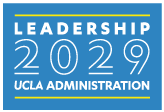Management Topic: UC Presidential Policy on Abusive Conduct in the Workplace
Dear Colleagues,
The Presidential Policy on Abusive Conduct in the Workplace opens a new window took effect on January 1, 2023. This policy prohibits abusive conduct and retaliation by and against members of the University community in the workplace. The Policy also prohibits retaliation against any person who, in good faith, reports abusive conduct, assists someone with a report of abusive conduct, or participates in an investigation or other process under the Policy. The University will respond to reports of Abusive Conduct in accordance with timelines set forth in this policy, and will take appropriate action to stop, prevent, correct, and discipline behavior that violates this policy.
In view of the importance of this policy, it is recommended that managers and supervisors read the policy in full. Highlights are summarized below:
- Managers and supervisors (including, among others, Chairs and Deans) have reporting obligations. Specifically, those who observe conduct that may constitute Abusive Conduct have a responsibility to address such conduct immediately. Managers and supervisors who receive a report of Abusive Conduct must immediately submit the report to the applicable office.
- Managers and supervisors need to know where to report concerns, as well as what resources are available to staff members:
- Resources for managers and supervisors include:
- Your Employee Relations Consultant opens a new window, Academic Personnel Office opens a new window, and/or Office of Student Conduct opens a new window. Reports may also be made to the Behavioral Intervention Team (BIT) opens a new window if the conduct might violate the Workplace Violence Prevention Policy opens a new window, in addition to the Policy on Abusive Conduct in the Workplace.
- The specific procedures for investigating and resolving complaints of Abusive Conduct depend on the Respondent’s role.
- Additional resources:
- Reports can be made confidentially to the UC Whistleblower Hotline opens a new window.
- The Staff & Faculty Counseling Center opens a new window can provide free and confidential support at (310) 794-0245.
- Resources for managers and supervisors include:
- Managers and supervisors need to be aware of the definition of abusive conduct. The Policy defines Abusive Conduct as harassing or threatening behavior that is sufficiently severe or persistent; or pervasive conduct in the workplace that denies, adversely limits, or interferes with a person’s participation in or benefit from the education, employment, or other programs or activities of the University. The conduct creates an environment, whether intended or not, that a reasonable person would find to be intimidating or offensive and unrelated to the University’s legitimate educational, employment, and business interests. Abusive Conduct may include but is not limited to the following types of conduct:
- Use of abusive and/or insulting language (written, electronic or verbal)
- Spreading false information or malicious rumors
- Behavior, language, or gestures that frighten, humiliate, belittle, or degrade, including criticism or feedback that is delivered with yelling, screaming, threats, implicit threats, or insults
- Encouraging others to act, singly or in a group, to intimidate or harass other individuals
- Making repeated or egregious comments about a person’s appearance, lifestyle, family, culture, country of origin, visa status, religious/spiritual/philosophical beliefs, or political views in a manner not covered by the University’s policies prohibiting discrimination
- Teasing or making someone the brunt of pranks or practical jokes
- Interfering with a person’s personal property or work equipment without a legitimate business or educational purpose
- Circulating photos, videos, or information via e-mail, text messages, social media, or other means without a legitimate business or educational purpose
- Making unwanted physical contact or encroaching on another individual’s personal space, in ways that would cause discomfort and unease, in a manner not covered by the University’s Sexual Violence and Sexual Harassment policy
- Purposefully excluding, isolating, or marginalizing a person from normal work activities for non-legitimate business purposes
- Repeatedly demanding of an individual that the individual do tasks or take actions that are inconsistent with that individual’s job, are not that individual’s responsibility, for which the employee does not have authority, or repeatedly refusing to take “no” for an answer when the individual is within the individual’s right to decline a demand; pressuring an individual to provide information that the individual is not authorized to release (or may not even possess)
- Making threats to block a person’s academic or other advancement, opportunities, or continued employment at the University without a legitimate business or educational purpose
- Sabotaging or undermining a person’s work performance
Some examples of what does not constitute abusive conduct are noted here:
- Providing performance appraisals to employees, including negative appraisals
- Delivering constructive criticism
- Coaching or providing constructive feedback
- Monitoring or restricting access to sensitive and confidential information for legitimate business reasons
- Scheduling regular or ongoing meetings to address performance issues
- Setting ambitious performance goals to align with departmental goals
- Counseling or disciplining an employee for performance, engaging in misconduct, or violating University policy
- Engaging in assertive behavior
- Having a disagreement
- Making unpopular statements or articulating positions on controversial issues
It’s essential that managers and supervisors share information with applicable offices as soon as possible, not just in accordance with the policy’s reporting obligations, but to ensure the applicable office can meet its obligations to make an initial assessment within 30 business days.
Campus procedures, including a complaint form, are in development. Training for all employees via LMS will be provided by the Office of the President in the near future. Employees will be expected to complete the Abusive Conduct training within 90 days of assignment. After completion of this initial course, Abusive Conduct training will be presented concurrent with employees’ regular Sexual Violence and Sexual Harassment training requirement.
Thank you for your commitment to promoting and maintaining a healthy working and learning environment in which every individual is treated with respect.
Additional courses and tools to learn more about this topic:
- Resolving Workplace Conflict opens a new window (LMS e-course)
- UC Responding to Conflict opens a new window (LMS e-course)
- Recognizing and Resolving Workplace Conflict opens a new window (LMS course offered May 23, 2023)
- Difficult Conversations opens a new window (LMS course offered March 2, 2023)

Interested in reviewing prior months’ topics? Visit our Monthly Management Tips website.
Do you have feedback, questions or a suggested topic you would like to learn more about? Please email: managementtips@ucla.edu(link sends email).
Want to receive Monthly Management Tips emails? Sign up for our list! opens a new window

